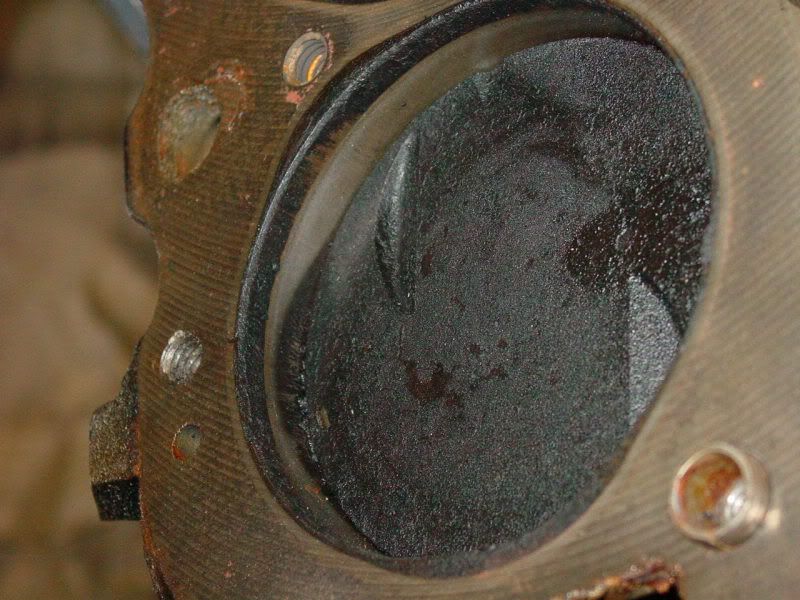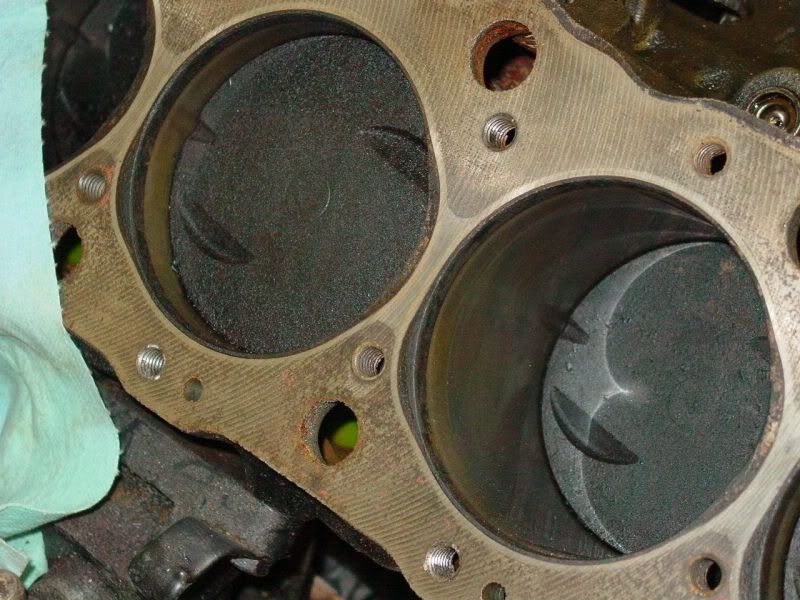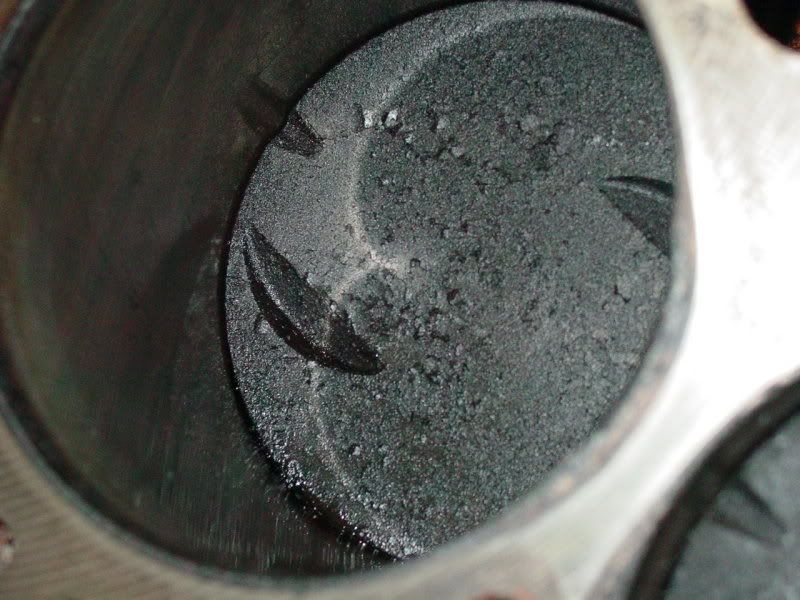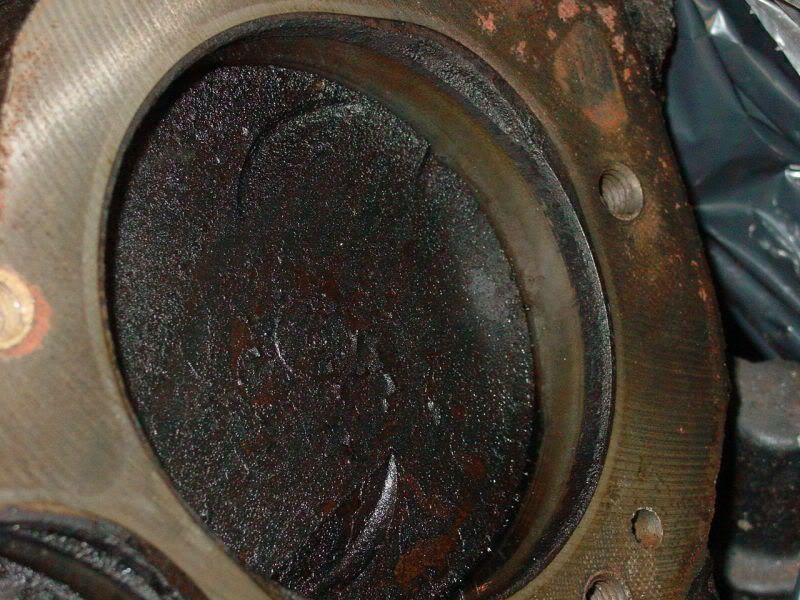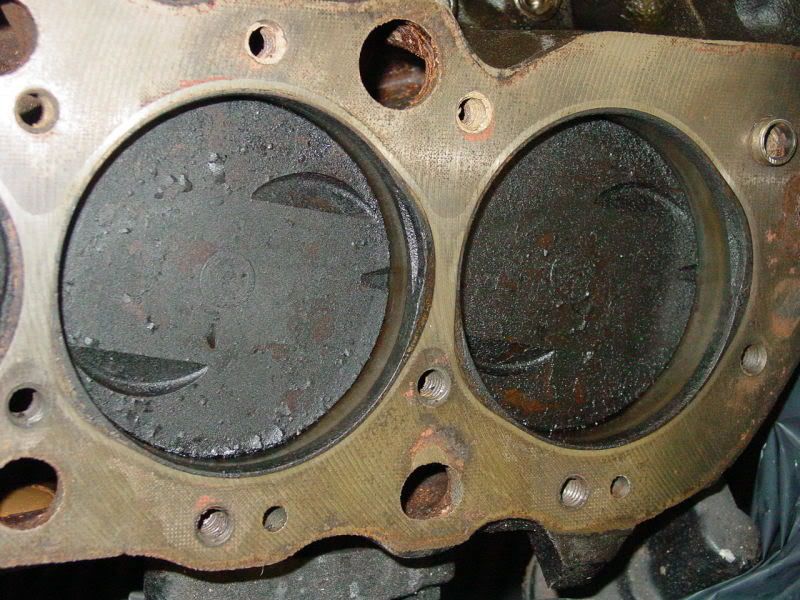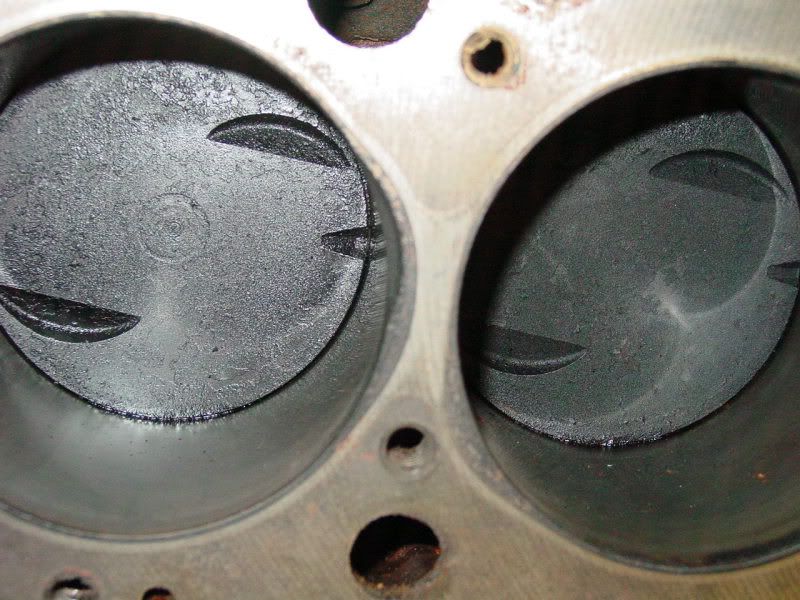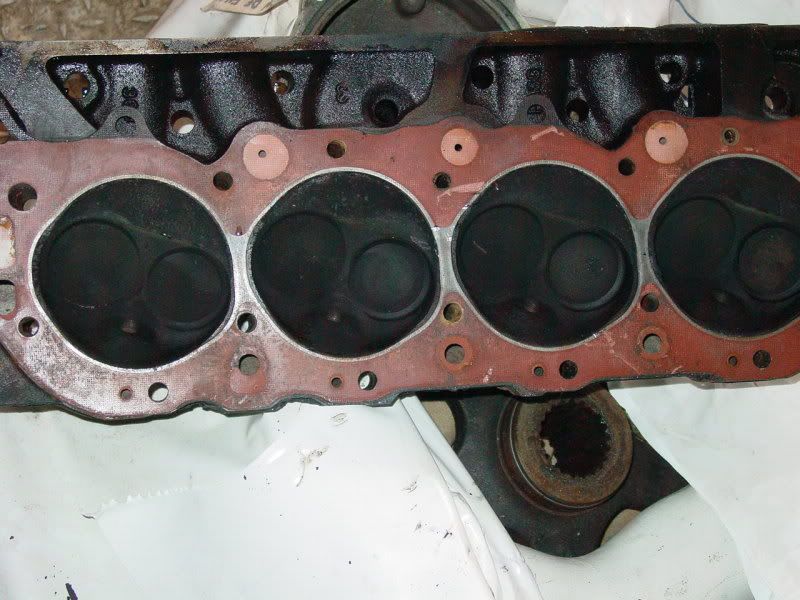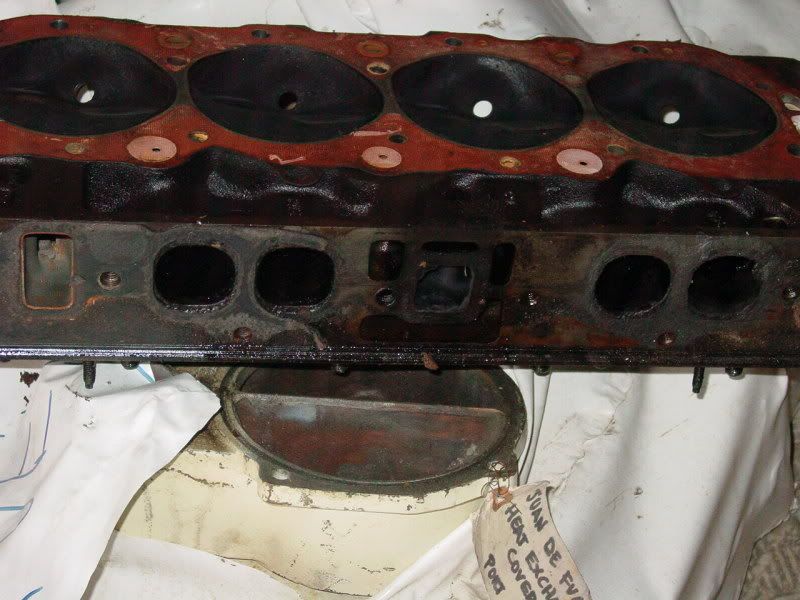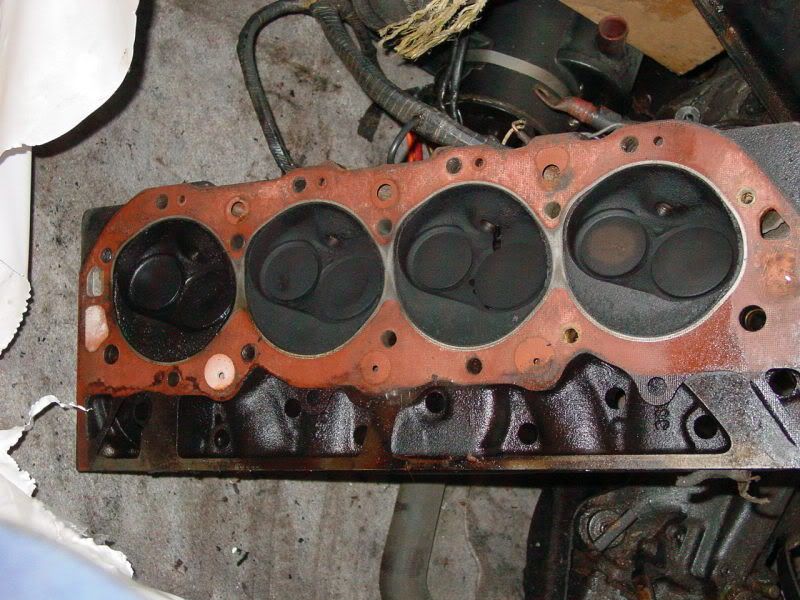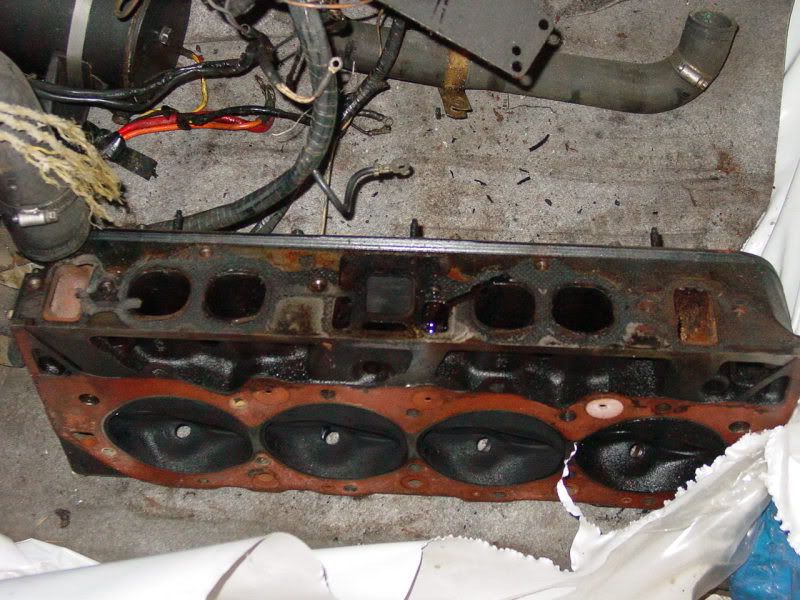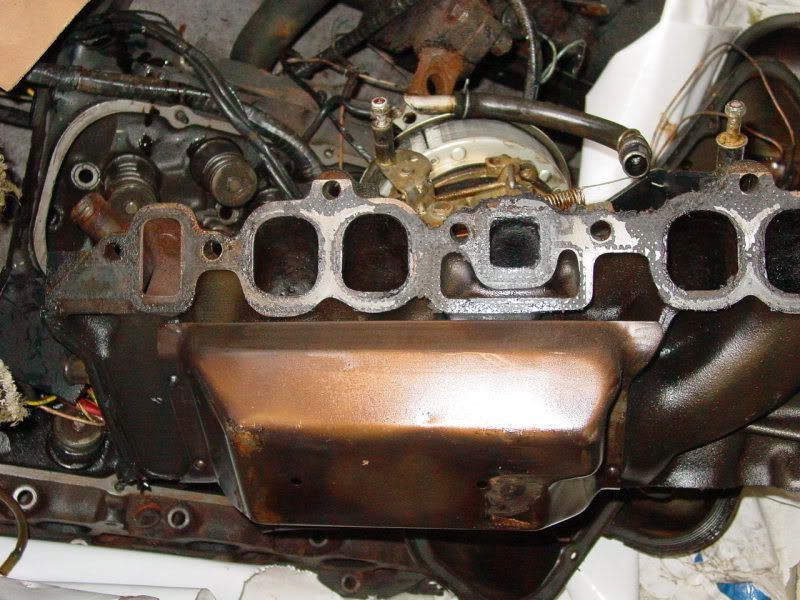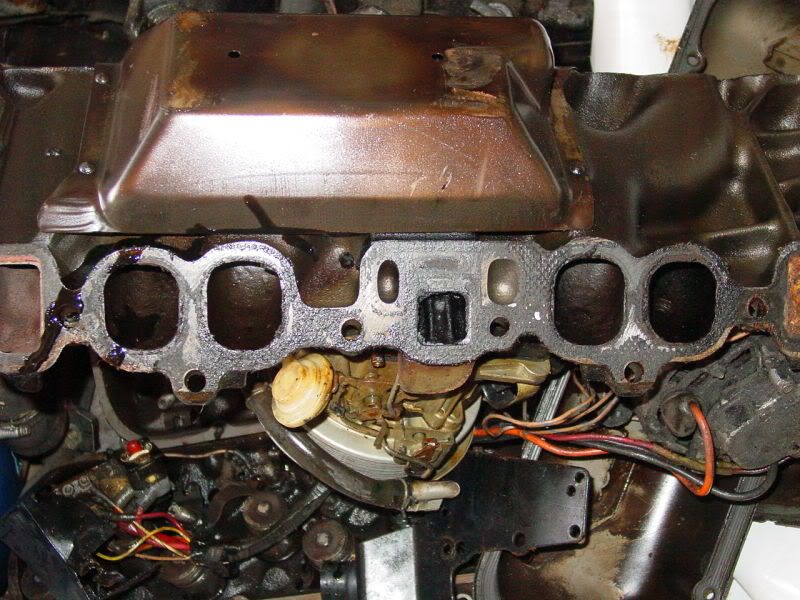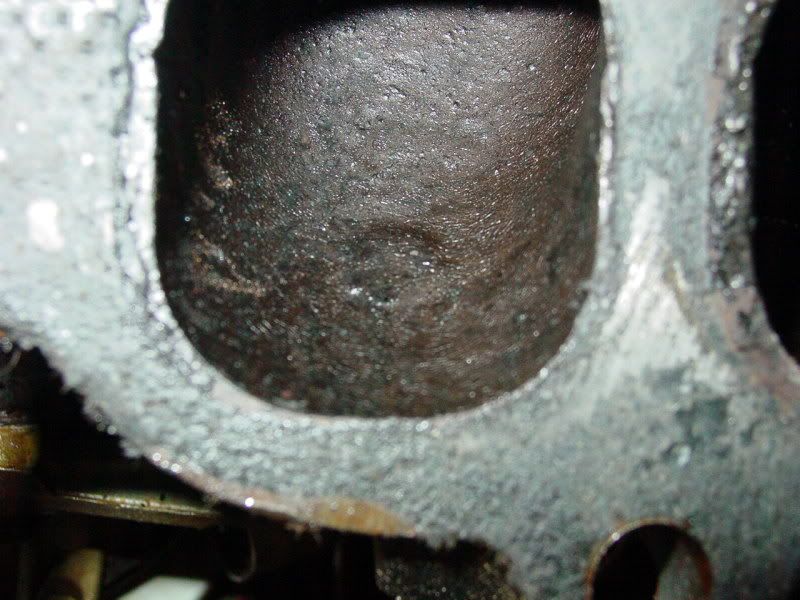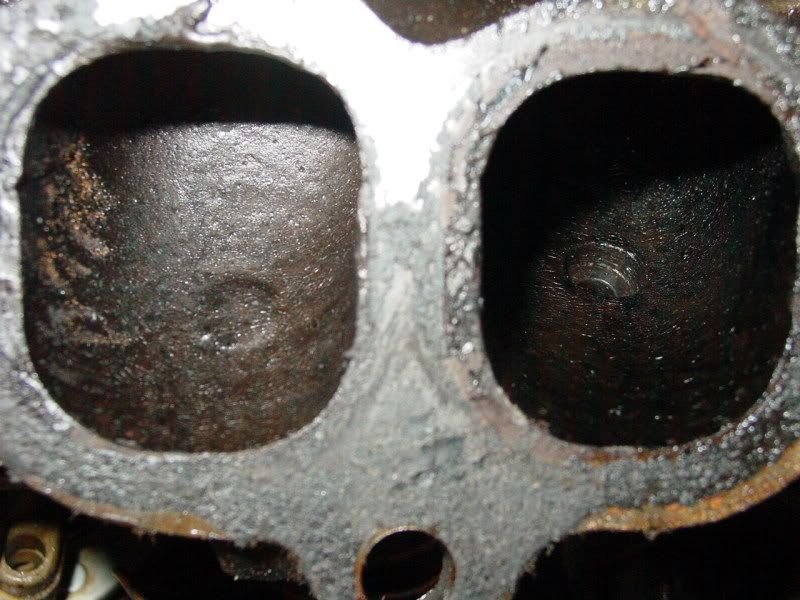Another Noob looking at a B28 with questions...
Moderators: CaptPatrick, mike ohlstein, Bruce
Another Noob looking at a B28 with questions...
All,
Really have enjoyed the site and GREAT information I have found here!
I have a "what do you think" question for the collective....
I having a time finding a good B28 on my limited budget (say around 30K)
I just found a mid 80's boat (wife likes the interior better) with 2007 repower. 200 hours on standard 350/ 300 HP motors BUT... has run on E10 with the original tank. Now, the boat has twin 35 gallon metal saddle tanks that I could run on for a while. I only go a few miles to fish anyway.
My question is can I pull the carbs to assess if the "black goo" issue has started with these motors? Would this be evident if it has started? The owner insists that the local Bertram dealer told him that E10 is not an issue in this boat.... As you could guess, I am skeptical!
What do you think??
Thanks,
JD in PA
Really have enjoyed the site and GREAT information I have found here!
I have a "what do you think" question for the collective....
I having a time finding a good B28 on my limited budget (say around 30K)
I just found a mid 80's boat (wife likes the interior better) with 2007 repower. 200 hours on standard 350/ 300 HP motors BUT... has run on E10 with the original tank. Now, the boat has twin 35 gallon metal saddle tanks that I could run on for a while. I only go a few miles to fish anyway.
My question is can I pull the carbs to assess if the "black goo" issue has started with these motors? Would this be evident if it has started? The owner insists that the local Bertram dealer told him that E10 is not an issue in this boat.... As you could guess, I am skeptical!
What do you think??
Thanks,
JD in PA
- Skipper Dick
- Senior Member
- Posts: 330
- Joined: Jun 29th, '06, 08:22
- Location: Cape Coral, Florida
- Contact:
JD,
If the original tank is fiberglass, which it is, then it is an issue. There are many articles referenced within this site that conclude without a doubt that ethanol will disolve the resin from a fiberglass tank made before the late 90's and deposit it in the engine. The damage comes from the continued build up of goo when it cools and the engine is started when cold after the goo has hardened.
My thoughts are, if one supplies fuel from a different tank made of aluminum, stainless or fiberglass made with vinylester resin, then the buildup will not continue and continued running would cause the buildup of goo to dissapate. Maybe with some addatives. Carbs are easy to remove and check and if there is signs of the black goo, I would think that boiling them out would remove the stuff.
I'm not sure about the buildup elsewhere. I would think that any buildup on lifters and such would just wear off after a while, but not having to gone through that, I can only say that by replacing my tank recently, I'm not going to have to deal with it like some of the more unfortunate Bertram owners did early on when the problem was an unknown factor.
I don't understand why a Bertram dealer would say such a thing unless the original tank had already been replaced or that the boat has continually been run on the saddle tanks. I'll bet that if there is any fuel in the fiberglass tank below deck that you will find traces of polyester resin in it.
The owner says that the Bertram dealer said that and that alone makes me suspicious, but with engines of so few hours, I'm not too sure I'd be concerned. But, if you bought the boat and something did happen to either engine or both, chances are there would be no warranty under the circumstances. That's just a guess.
Dick
If the original tank is fiberglass, which it is, then it is an issue. There are many articles referenced within this site that conclude without a doubt that ethanol will disolve the resin from a fiberglass tank made before the late 90's and deposit it in the engine. The damage comes from the continued build up of goo when it cools and the engine is started when cold after the goo has hardened.
My thoughts are, if one supplies fuel from a different tank made of aluminum, stainless or fiberglass made with vinylester resin, then the buildup will not continue and continued running would cause the buildup of goo to dissapate. Maybe with some addatives. Carbs are easy to remove and check and if there is signs of the black goo, I would think that boiling them out would remove the stuff.
I'm not sure about the buildup elsewhere. I would think that any buildup on lifters and such would just wear off after a while, but not having to gone through that, I can only say that by replacing my tank recently, I'm not going to have to deal with it like some of the more unfortunate Bertram owners did early on when the problem was an unknown factor.
I don't understand why a Bertram dealer would say such a thing unless the original tank had already been replaced or that the boat has continually been run on the saddle tanks. I'll bet that if there is any fuel in the fiberglass tank below deck that you will find traces of polyester resin in it.
The owner says that the Bertram dealer said that and that alone makes me suspicious, but with engines of so few hours, I'm not too sure I'd be concerned. But, if you bought the boat and something did happen to either engine or both, chances are there would be no warranty under the circumstances. That's just a guess.
Dick
1983 Bertram 28 FBC w/300 Merc Horizon
Dick,
Thanks for th reply!
My thoughts were buy it and run off the aluminum tanks for now and replace the tank myself as a project.
I just want to ensure that the motors aren't toast already due to unseen build up. These guys were fishing this boat offshore until two weeks ago so I'm confident it runs well now.
decisions, decisions.....
JD
Thanks for th reply!
My thoughts were buy it and run off the aluminum tanks for now and replace the tank myself as a project.
I just want to ensure that the motors aren't toast already due to unseen build up. These guys were fishing this boat offshore until two weeks ago so I'm confident it runs well now.
decisions, decisions.....
JD
Dick,
Sorry to diagree, but I don't believe that to be the case. There are many boats out there that have been running ethanol for 3+ years with no effect.
A friend with a gas powered 1985 33 SF pulled his tank due to the hysteria at the end of 2006 (after having run about 1500 gallons of ethanol that summer) and replaced it with a stainless tank. We have cut pieces of that tank into smaller strips and have set them in several jars. Some with straight ethanol and others with various mixtures of ethanol and water. That was 2 years ago. So far the only strips that have shown any degredation are those where the mixture was at or above 75% ethanol and 25% water. Anything less than 25% water has shown no effect after 2 years.
There are other factors involved and to make blanket statements that all figerglass tanks prior to 1990 will fail is incorrect and just adds to the hysteria that is killing the resale value of these boats.
After my discussions with Lee Dana, current Bertram mangement, and Danny at Hightide, I would say that the cut-off is probably sometime in the mid 80's.
What year is the boat in question?
Sorry to diagree, but I don't believe that to be the case. There are many boats out there that have been running ethanol for 3+ years with no effect.
A friend with a gas powered 1985 33 SF pulled his tank due to the hysteria at the end of 2006 (after having run about 1500 gallons of ethanol that summer) and replaced it with a stainless tank. We have cut pieces of that tank into smaller strips and have set them in several jars. Some with straight ethanol and others with various mixtures of ethanol and water. That was 2 years ago. So far the only strips that have shown any degredation are those where the mixture was at or above 75% ethanol and 25% water. Anything less than 25% water has shown no effect after 2 years.
There are other factors involved and to make blanket statements that all figerglass tanks prior to 1990 will fail is incorrect and just adds to the hysteria that is killing the resale value of these boats.
After my discussions with Lee Dana, current Bertram mangement, and Danny at Hightide, I would say that the cut-off is probably sometime in the mid 80's.
What year is the boat in question?
Regards,
Doug L.
Doug L.
- In Memory Walter K
- Senior Member
- Posts: 2912
- Joined: Jun 30th, '06, 21:25
- Location: East Hampton LI, NY
- Contact:
If those guys were running offshore with it, they were using more than those two saddle tanks. This is not the time to skimp as it will cost you a lot later. Get a good surveyer, pull the carbs, get a compression check and when doing that, inspect the plugs for goo. If they won't let you, don't even consider it. I really smell a rat. The boat may be OK, but the seller and his "Bertram dealer" don't seem to be. The Ethanol thing is no small thing. It sneaks up on you slowly. As the goo develops on the valve seats, the day will come when in cooling down after a trip, they'll glue shut. Next startup will cause you bent pushrods etc. For your shorter runs, the Saddle tanks will be OK, but their offshore sojourns really makes me question their credibility. My opinion. Walter
- Skipper Dick
- Senior Member
- Posts: 330
- Joined: Jun 29th, '06, 08:22
- Location: Cape Coral, Florida
- Contact:
DougL,
The boat in question is in the mid 80's.
You can disagree all you want, but the post I made was not based on my own personal opinion. There have been numerious scientific tests under labratory conditions performed that prove otherwise. These tests were enabled by not only BoatUS, but the US Coast Guard along with private individuals who have had tests conducted for their law suits agains the oil companies. And the conclusions were for tanks made after 1995, but that was not firm since I have read about under ground tanks that were made after 1998 that were effected. If one believes that their tank is immune, they should take a sample and send it to two labs for tests.
The tests under lab conditions are undeniable. If some one has been using ethanol in an older fiberglass tank and has no detrementle effects, then all I can say is that it is only a matter of time. Maybe the ethanol concentraion was less than 10 percent. Maybe it was less than 5 percent, but ask the guys on this board who have lost their gas engines to ethanol leaching out their fiberglass tanks and I'm sure you will get a rise. Maybe the manufacturer that made the tanks for Bertram used a different gel coat inside. Who knows, but the fact is that ethanol at or above 10 percent will leach polyester resin and it will pass into your gas engine and eventually ruin it. There has been plenty of ink used saying just that.
I can tell you that even though I believe I have never put ethanol in my fiberglass tank, when I removed it, the gel coat inside was pitted, which tells me that at some time either methanol or ethanol was used in this boat. I have researched this for over two years by reading other posts on this site and others and seeking out data from other sources to make my conclusion. The tank itself plainly said "not for use with Methanol" and that is just the same as ethanol. Even the oil companies have replaced their older underground tanks with fiberglass tanks made with a resin that will withstand ethanol. The money and time I have in this boat is not worth the gamble based on a few isolated reports of "all is well" and I would think any Bertram owner would feel the same.
I could have done just fine without this project and the $4,000 expense.
Please don't take my firm response to your disagreement personal, but the situation you cited is flawed and any one who owns an older boat like ours needs to be fully aware of the consequences of using ethanol in their boat if they are using the original fiberglass tank. I know that there are instances of reports that certain boats have had no ill effect and I believe that is possible, but not something I'd gamble on with all the information out there that is contrary.
Dick
The boat in question is in the mid 80's.
You can disagree all you want, but the post I made was not based on my own personal opinion. There have been numerious scientific tests under labratory conditions performed that prove otherwise. These tests were enabled by not only BoatUS, but the US Coast Guard along with private individuals who have had tests conducted for their law suits agains the oil companies. And the conclusions were for tanks made after 1995, but that was not firm since I have read about under ground tanks that were made after 1998 that were effected. If one believes that their tank is immune, they should take a sample and send it to two labs for tests.
The tests under lab conditions are undeniable. If some one has been using ethanol in an older fiberglass tank and has no detrementle effects, then all I can say is that it is only a matter of time. Maybe the ethanol concentraion was less than 10 percent. Maybe it was less than 5 percent, but ask the guys on this board who have lost their gas engines to ethanol leaching out their fiberglass tanks and I'm sure you will get a rise. Maybe the manufacturer that made the tanks for Bertram used a different gel coat inside. Who knows, but the fact is that ethanol at or above 10 percent will leach polyester resin and it will pass into your gas engine and eventually ruin it. There has been plenty of ink used saying just that.
I can tell you that even though I believe I have never put ethanol in my fiberglass tank, when I removed it, the gel coat inside was pitted, which tells me that at some time either methanol or ethanol was used in this boat. I have researched this for over two years by reading other posts on this site and others and seeking out data from other sources to make my conclusion. The tank itself plainly said "not for use with Methanol" and that is just the same as ethanol. Even the oil companies have replaced their older underground tanks with fiberglass tanks made with a resin that will withstand ethanol. The money and time I have in this boat is not worth the gamble based on a few isolated reports of "all is well" and I would think any Bertram owner would feel the same.
I could have done just fine without this project and the $4,000 expense.
Please don't take my firm response to your disagreement personal, but the situation you cited is flawed and any one who owns an older boat like ours needs to be fully aware of the consequences of using ethanol in their boat if they are using the original fiberglass tank. I know that there are instances of reports that certain boats have had no ill effect and I believe that is possible, but not something I'd gamble on with all the information out there that is contrary.
Dick
Last edited by Skipper Dick on Nov 15th, '08, 17:30, edited 1 time in total.
1983 Bertram 28 FBC w/300 Merc Horizon
Dick,
Nothing taken personally. Just a friendly difference of opinions.
I'm not sure what's wrong with the simple testing that we've done, but from everything I've read (and I've read pretty much everything) its the only test of its kind that been done.
I've read everything Boat Useless ever did and never saw anything where they did any real testing based on the tank material itself. Ditto for the CG.
I will tell you that another 33 owner replaced his tank without ever putting a drop of ethanol in it. His was a 78. Upon dissecting his tnak, it was found that the rivets holding the baffles in were rusting and there was some delam going on. The only thing that tells me is that these tanks aren't as forever as we all thought regardless of ethanol. As you say you neer had any ethanol in your tank I think that was probably you're issue as well.
I'd be willing to bet you haven't seen/heard of too many (if any) mid 80's or later boats that have had issues. Sure, there are guys like my buddy with the 85 33 SF that replaced his out of fear, but I've yet to see or hear anyone have a tank fail or get the dreaded black goo. All gas sold here in the NE is E10.
I ran about 1200-1500 gallons of ethanol during the 2006 season and never had an issue. I switched to diesels after that season and have had no issues with the tank.
I also know of several other mid 80's owners that are still running ethanol with no effect. Bertram (or the industry) switched resins to a more ethanol friendly one sometime in the mid 80's.
There's more to this story than just the ethanol. There are too many other factors involved to pin it all on ethanol. I do think that ethanol can be the catalyst (literally and figuratively) in some boats.
All fiberglass tanks are not created equal!
Nothing taken personally. Just a friendly difference of opinions.
I'm not sure what's wrong with the simple testing that we've done, but from everything I've read (and I've read pretty much everything) its the only test of its kind that been done.
I've read everything Boat Useless ever did and never saw anything where they did any real testing based on the tank material itself. Ditto for the CG.
I will tell you that another 33 owner replaced his tank without ever putting a drop of ethanol in it. His was a 78. Upon dissecting his tnak, it was found that the rivets holding the baffles in were rusting and there was some delam going on. The only thing that tells me is that these tanks aren't as forever as we all thought regardless of ethanol. As you say you neer had any ethanol in your tank I think that was probably you're issue as well.
I'd be willing to bet you haven't seen/heard of too many (if any) mid 80's or later boats that have had issues. Sure, there are guys like my buddy with the 85 33 SF that replaced his out of fear, but I've yet to see or hear anyone have a tank fail or get the dreaded black goo. All gas sold here in the NE is E10.
I ran about 1200-1500 gallons of ethanol during the 2006 season and never had an issue. I switched to diesels after that season and have had no issues with the tank.
I also know of several other mid 80's owners that are still running ethanol with no effect. Bertram (or the industry) switched resins to a more ethanol friendly one sometime in the mid 80's.
There's more to this story than just the ethanol. There are too many other factors involved to pin it all on ethanol. I do think that ethanol can be the catalyst (literally and figuratively) in some boats.
All fiberglass tanks are not created equal!
Regards,
Doug L.
Doug L.
- In Memory Walter K
- Senior Member
- Posts: 2912
- Joined: Jun 30th, '06, 21:25
- Location: East Hampton LI, NY
- Contact:
Walt,
I hear you, but I think when we're comparing boats from the 60's to boats from the mid 80's we're talking about apples and dump trucks.
I've known guys that've been running ethanol for 3+ years and have had no issues.
Again, how many 30's, 33's, 35's,37's, or 38's have you heard about that have had actual issues.
Bertram probably built 3000+ gas powered boats. How many of those have had actual issues? 100? Maybe 200? 200 tanks represent less than 7% of the total. Of the total, I'd be willing to bet that 95% have been on 20's, 25's, and 31's.
I hear you, but I think when we're comparing boats from the 60's to boats from the mid 80's we're talking about apples and dump trucks.
I've known guys that've been running ethanol for 3+ years and have had no issues.
Again, how many 30's, 33's, 35's,37's, or 38's have you heard about that have had actual issues.
Bertram probably built 3000+ gas powered boats. How many of those have had actual issues? 100? Maybe 200? 200 tanks represent less than 7% of the total. Of the total, I'd be willing to bet that 95% have been on 20's, 25's, and 31's.
Regards,
Doug L.
Doug L.
Doug,
It is documented fact that my tank was comprimised by the E10 gas, and I lost one engine because of it. I took photos of the disassembled engine yesterday and will post later in the week. The point is, my boat is a 1971, not to put a hex on anyone, But a good friend of the sandbox has a 1972 with the original tank, and as of yet, has not encountered the problems I have seen. He may or may not chime in. But if the change occurred in the mid to late 80's, what can account for him not having the same problems I had with an early 70's tank?....besides your already mentioned point that no 2 tanks are the same.
It is documented fact that my tank was comprimised by the E10 gas, and I lost one engine because of it. I took photos of the disassembled engine yesterday and will post later in the week. The point is, my boat is a 1971, not to put a hex on anyone, But a good friend of the sandbox has a 1972 with the original tank, and as of yet, has not encountered the problems I have seen. He may or may not chime in. But if the change occurred in the mid to late 80's, what can account for him not having the same problems I had with an early 70's tank?....besides your already mentioned point that no 2 tanks are the same.
Harv
Don't know Harv. That's sort of what I've been saying for the last 3+ years.
Why did some guys have problems right off the bat where others haven't had an issue yet? It makes me believe there's other issues at work than just the fuel. I think the other variables are: how much water is on your tank to start, how clean or dirty the tank is, and the condition of your tank prior to using ethanol. As Dick pointed out, he never even used ethanol and he seemed to have issues.
What I find strange is that you only lost one motor and not both? If there's only 1 tank why did one fail and the other not? Yours is not the only case I've heard like that.
Weird.
Finally, there are virtually no cases with boats from the mid-80's on.
Why did some guys have problems right off the bat where others haven't had an issue yet? It makes me believe there's other issues at work than just the fuel. I think the other variables are: how much water is on your tank to start, how clean or dirty the tank is, and the condition of your tank prior to using ethanol. As Dick pointed out, he never even used ethanol and he seemed to have issues.
What I find strange is that you only lost one motor and not both? If there's only 1 tank why did one fail and the other not? Yours is not the only case I've heard like that.
Weird.
Finally, there are virtually no cases with boats from the mid-80's on.
Regards,
Doug L.
Doug L.
-
Tony Meola
- Senior Member
- Posts: 7114
- Joined: Jun 29th, '06, 21:24
- Location: Hillsdale, New Jersey
- Contact:
Doug
There is some question as to what they used to build the mid 80's tank's. Some say they are ok others say they are not. I will tell you this and Harv can jump in. I believe the year Harv had problems, was year 3 of ethanol up on Long Island.
Harv, is that true?
If that is true then you are close to the window to find out if the tank is ok.
There is some question as to what they used to build the mid 80's tank's. Some say they are ok others say they are not. I will tell you this and Harv can jump in. I believe the year Harv had problems, was year 3 of ethanol up on Long Island.
Harv, is that true?
If that is true then you are close to the window to find out if the tank is ok.
Doug,
The motors in my boat were replaced in 88 & 89 respectively.
The motor replaced in 88 was the motor that was effected.
Maybe the fact that once the 88 motor let go, the boat hadn't been used except to motor to the travel lift, and that fresh gas from a drum was used to do it, may have saved the other motor. Maybe 5 minutes or 5 hours more use, could have killed the other motor....I have no clue.
Tony,
Yes, year 3 of ethanol, but that doesn't explain the fact that the other steward I mentioned is also on Long Island and still running without similar problems.
The motors in my boat were replaced in 88 & 89 respectively.
The motor replaced in 88 was the motor that was effected.
Maybe the fact that once the 88 motor let go, the boat hadn't been used except to motor to the travel lift, and that fresh gas from a drum was used to do it, may have saved the other motor. Maybe 5 minutes or 5 hours more use, could have killed the other motor....I have no clue.
Tony,
Yes, year 3 of ethanol, but that doesn't explain the fact that the other steward I mentioned is also on Long Island and still running without similar problems.
Harv
-
TakinOnWater
- Posts: 8
- Joined: Sep 10th, '10, 05:55
- Location: NY NY
Sorry to dig up an old thread here, but dougl33 mentioned he has not seen this issue cause problems on any of the mid 80's hulls in his research on the topic.
Does anyone have any evidence to refute this claim?
Did Bertram change up the resin in the mid 80's?
If so, any idea on percentage of boats that were affected by the ethanol problems from this alleged improved tank resin era?
I ask because I am in the process of buying an 83 26'er and after being brought up to speed on this fuel tank issue, it looks like I will be running, not walking away. I was referred here for expert knowledge!
Thanks for any and all input...
Does anyone have any evidence to refute this claim?
Did Bertram change up the resin in the mid 80's?
If so, any idea on percentage of boats that were affected by the ethanol problems from this alleged improved tank resin era?
I ask because I am in the process of buying an 83 26'er and after being brought up to speed on this fuel tank issue, it looks like I will be running, not walking away. I was referred here for expert knowledge!
Thanks for any and all input...
- Skipper Dick
- Senior Member
- Posts: 330
- Joined: Jun 29th, '06, 08:22
- Location: Cape Coral, Florida
- Contact:
I have an 83 and I had to change my tank. I put in a fibergalss made with vinylester. The only thing I'm not happy with is that the siphon tube was hastily brazed and they put some sort of goo on the weld to keep it from sucking air. It worked for a while, but then I pulled the tube and discovered the stuff they put on to seal the poor brazing was running down the tube. I suspect it was the ethanol that was disolving it and took some lacquer thinner and cleaned all the crap off and then re-brazed it. Then no problems.
Dick
Dick
1983 Bertram 28 FBC w/300 Merc Horizon
Who is online
Users browsing this forum: No registered users and 6 guests
